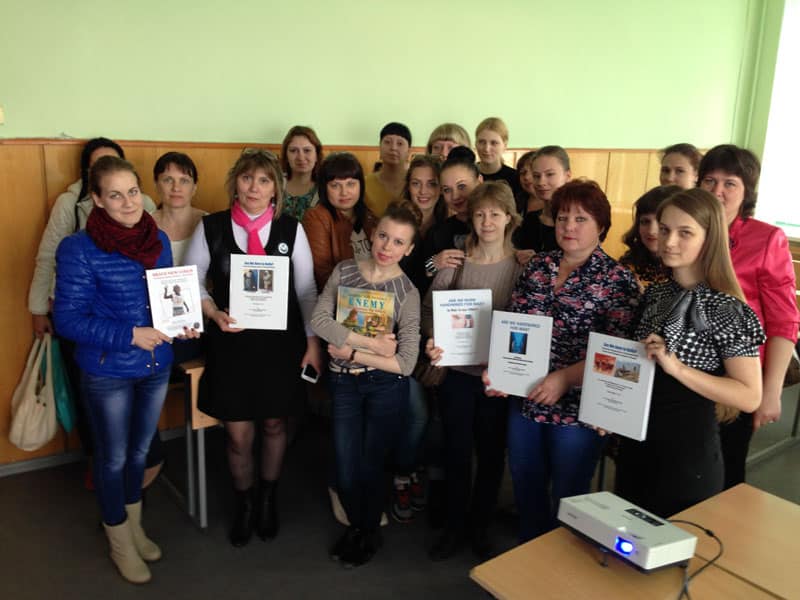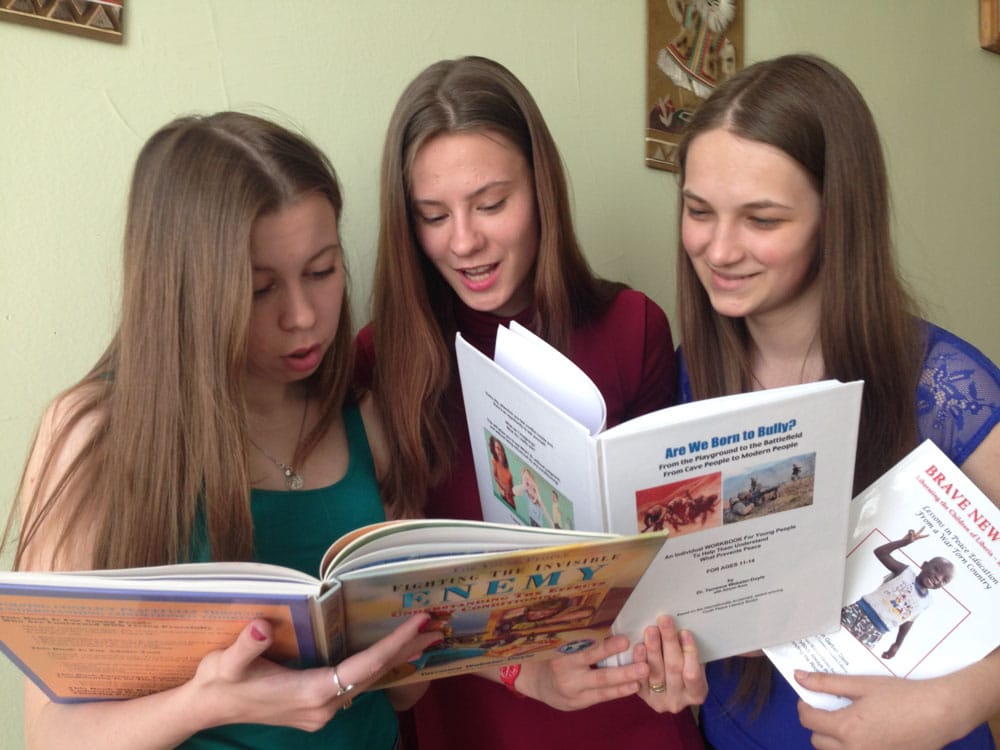Model Program at Samara State Institute of Culture

In today’s world there is conflict the world over – at home, at school, in offices, among nations. There are ongoing attempts to stop the fighting, stop battles, and stop wars, yet they still go on. What creates this conflict? What is its origin? Is it possible that we are genetically hardwired for war? Is combat in our DNA? Is this what prevents peace?
Samara State Institute of Culture in Samara, Russia has trained and certified students in the Are We Born Hardwired for War? program created by the Atrium Society USA.
They honored the Atrium by creating Postcards for Peace from Terrence that was proclaimed on the International Peace Day 12 September 2017.

Here is a sample of correspondence from the Atrium’s work with Samara State Institute of Culture, Samara, Russia in training and certifying their students.
Dear Terrence:
We have held three thematic seminars and two trainings on your books (in April and May) for students Samara State Institute of Culture. There were considered the topics “Creative practice of intercultural reconciliation”, “Best cultural practices and experience for conflict resolution” and “Peace Through Understanding Conflict”. I also did presentation of your books for lecturers and students of our Institute. I have included your article in our forthcoming book “Order and Metamorphoses of Cultural Communication”.
Best to you and Jean
Vladimir
Dear Terrence,
Recently, we have held some small seminars “Anthropology of Conflict: War and Peace in Mind Games” with our students at Samara State Institute of Culture. The students got your books for their reading and learning. I’ve gave to the students some tasks in studying of your texts and ask them create scenarios of conflict situations and ways their reconciliations with using your methods, ideas and approaches. It was very successful training for them.
Best wishes to you and Jean,
Vladimir
Dear Terrence,
I became acquainted with your materials with great interest. The mini-museum looks splendid. Indeed, this visual online format will be more effective in learning and understanding your concepts. It will be more accessible for students in study of essential roots of human prejudices and conflicts and real mechanisms of intercultural/interpersonal reconciliation. Now I am thinking how we can better use educational resources of mini-museums in education program of our profile (cultural and social anthropology/cultural studies). Perhaps, it will be special (facultative) course or it will be part of fundamental program in study of human resources of taming of conflicts/violence through creating of special models/instruments of behavior and peaceful relationship.
In many ways, we have to start from the beginning. The point is that some of our students with certificates are already finishing Institute in this spring. But our education continues…of course. Other obstacle is poor English of our students. We have to translate the basic materials in Russian. But only for small group of students it will be good experience in their translation skills. Yes, of course, there are some problems. But, who said that everything must be easy? So these difficulties should not stop us in this undertaking. And any possibilities to peace educational cooperation between Institutions, lecturers and students will be useful.
With best regards,
Vladimir
Dear Terrence,
I wish gladly inform you that on recommendation by International School of Advanced Research in Cultural Studies you were given title of Honorary Professor of Samara State Institute of Culture. My congratulation! I hope that this event will be promoting to our fruitful cooperation for the sake of science, education, art, peace and creativity.
With best wishes to you and Jean,
Vladimir